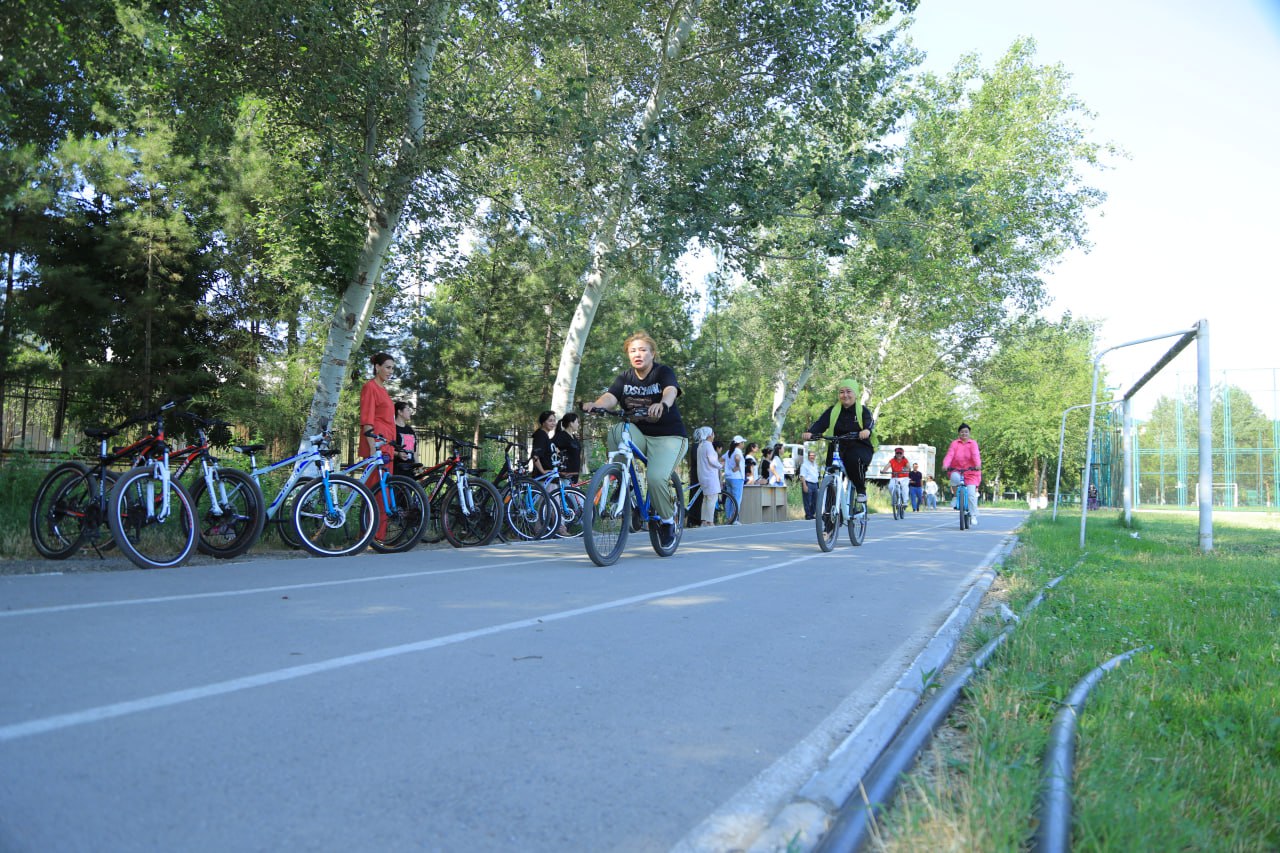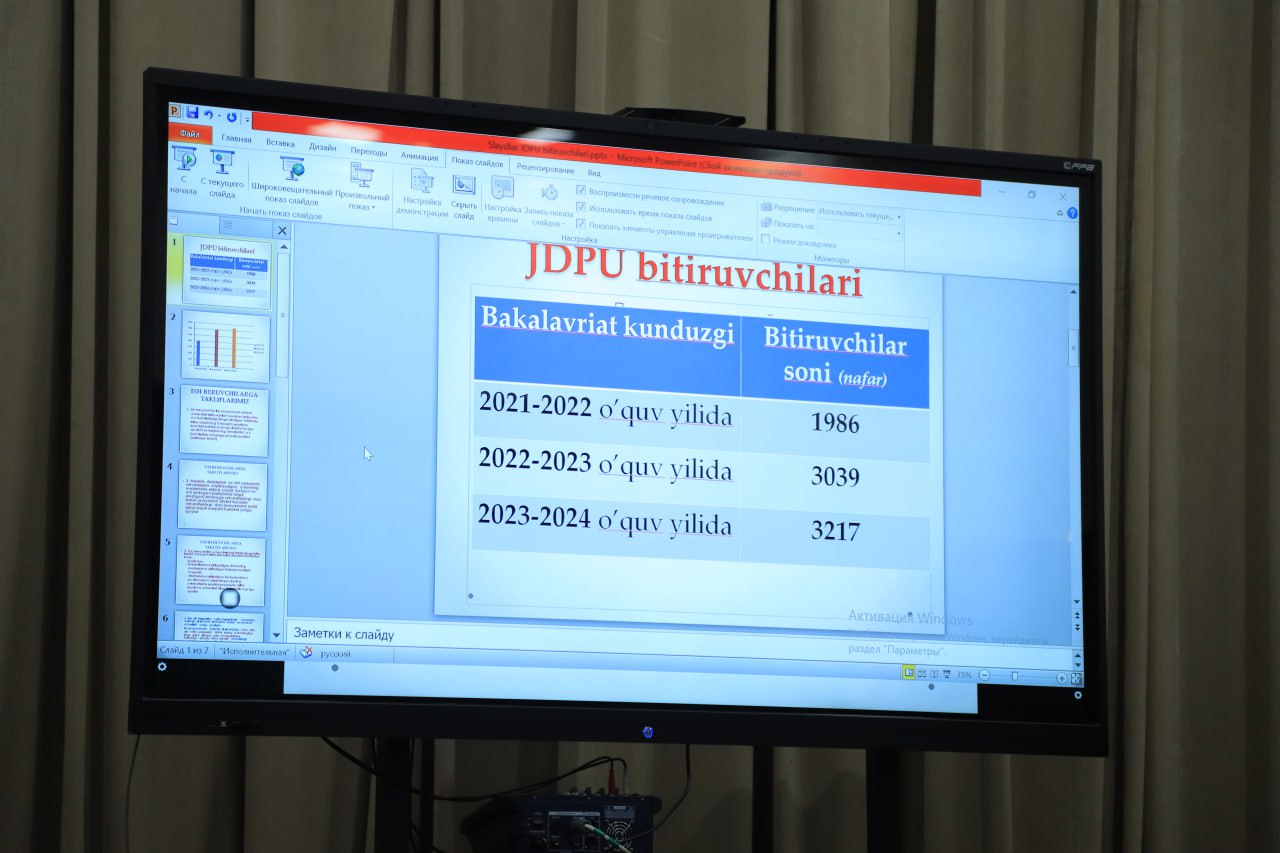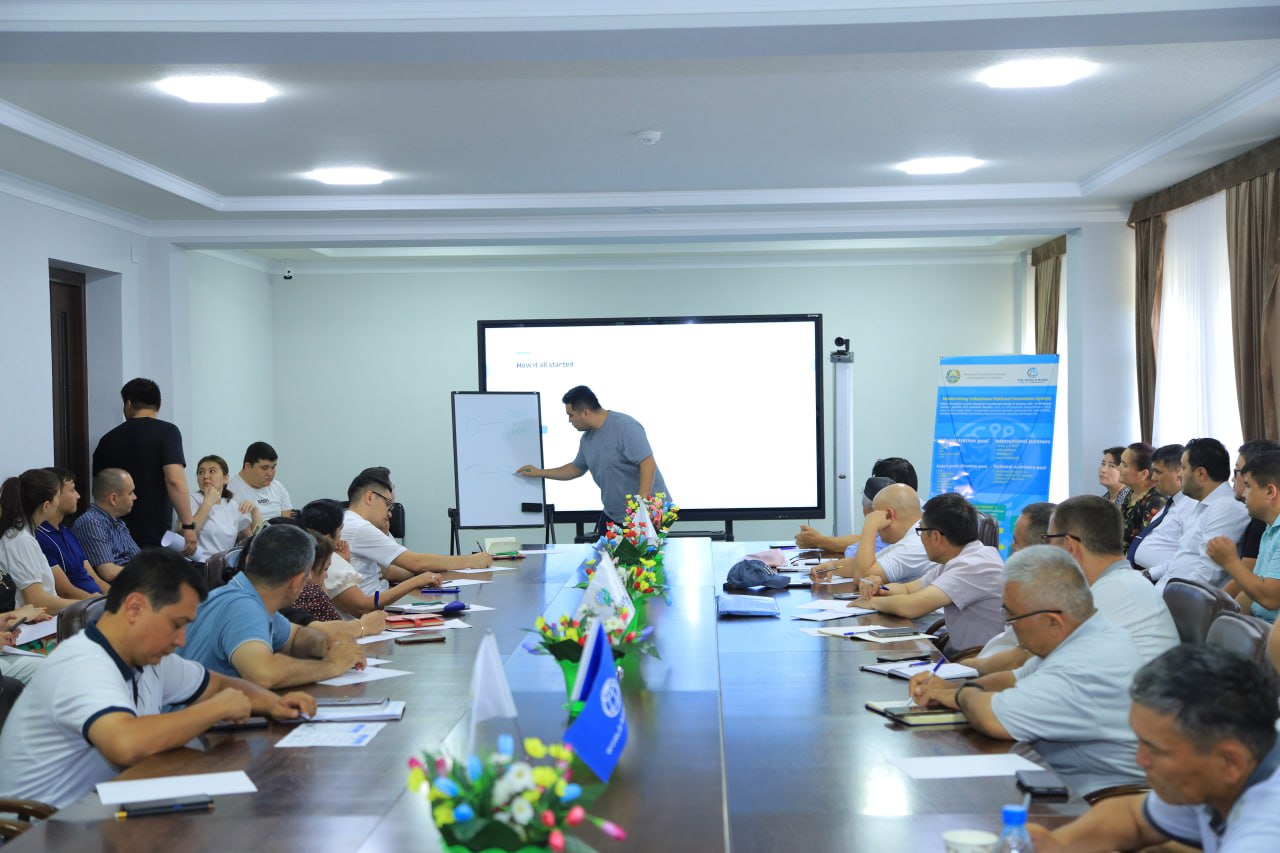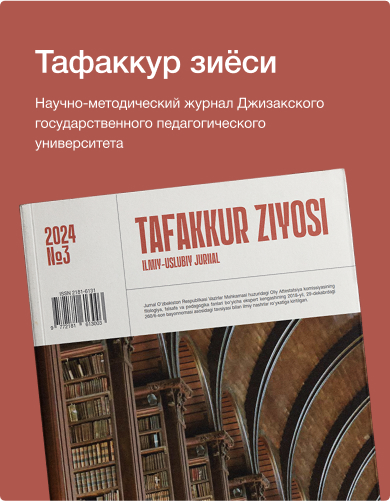Fotima Abdullayeva
Jizzakh State Pedagogical University
E-mail address: abdullayeva@mail.ru
Abstract: Special studies on the technical terminology of the Russian language played an important role in the development of issues of technical terminology (including English and Uzbek languages).
Key words: technical terminology, new term, experience, terminological research, foreign terms, practical application, scientific translation, scientific terminology.
INTRODUCTION
In this regard, the well-known terminologist, initiator of terminological research D.S. Lotte’s work is particularly noteworthy. Prof. M.V. Sergievsky says about his work: “D.S. Lotte’s research is of great importance both for Russian linguistics and for the regulation of the technical terminology of the Russian language. It should be noted here that D.S. Lotte’s works are equally important for English and Uzbek linguistics and terminology. Because, in his works, the most urgent issues such as the regulation of scientific and technical terms and the creation of terms have been expressed.
MATERIALS AND METHODS
D.S. Lotte has shown that there are several ways to create a terminological system. This is equally important for English terminology and Uzbek terminology. He showed the following ways of creating scientific and technical terms:
- Changing the meaning of existing terms or words of common use (in general use, circulation) by transferring (meaning) based on technical similarity, external similarity or interdependence, for example, “ustalost – fatigue – tiredness”, “vynoslivost – endurance – endurance”, Like “jeleznoe derevo – iron tree – iron tree”, “soprotivlenie – resistance – resistance”.
- Using various affixes (suffixes, prefixes) to create new words from existing words, for example, in Russian “magnit – namagnichivanie – magnitnost”, in English “magnet – magnetizing – magnetization”, in Uzbek “magnit – magnitlash – magnetlilik” ” etc.
- Forming a new compound (multi-stem) word by combining existing independent words and roots (which can sometimes be shortened), for example, “elektorovoz – electric locomotive – elektrovoz”, “automashina – automobile – automashina” .
- Forming compound terms, that is, turning two or more independent words into a continuous compound by means of an existing syntactic form, for example, “dvigatel vnutrennego sgoraniya – internal-combustion engine – ідный опелгич двигатель”, “poluprovodnikovy pribor – semiconductor instrument (appliance ) – semiconductor equipment, etc.
- In the reconstruction (creation) of terminology and the creation of a new term, firstly, the question of how to harmonize the requirements of scientific accuracy and, secondly, the requirements of brevity is always raised. For this reason, sometimes the experience (work) of mastering foreign terms is referred to. In this case, two types of events are followed: 1) ready acceptance (transfer) of a foreign term in written and oral form; 2) exact translation of the foreign term into the Russian language (in our case, into the Uzbek language).
The methods of term formation shown by D.S. Lotte find their practical application in English and Uzbek terminology and translation of scientific and technical terms. It should be noted that the collections of his works published under the names “Fundamentals of establishing scientific and technical terminology”, “Short forms of scientific and technical terms”, “Creating scientific and technical terms consisting of three elements and their spelling” are not only in Russian, but also in other languages. It has been serving as a valuable resource in developing theoretical issues of terminology and creating national terminology on this basis.
It is known that in almost all works on scientific and technical terminology, linguistic units that represent specific concepts of one or another field, have a lexical definition and mainly perform a nominative function are considered as terms.
The debate about which groups of words are considered to be terms is still ongoing. D.S. In one of his works, Lotte writes about what categories of words can be terminated: “…in science and technology, the main categories that mean the following concepts are terminated: processes; technical items (materials, weapons, tools, details, etc.); properties; computational concepts (parameters, geometric images, etc.); units of measurement” .
The well-known terminologist G.O. Vinokur writes in one of his works: “Words expressing certain scientific and technical concepts, depending on their terminological function, necessarily take the form of an abstract name (noun).” Continuing his opinion, he says: “…in technical terminology, the verb as a grammatical category of action is not in the form of a verb that cannot represent a logical subject, but in the form of an abstract noun that retains the meaning of action, but can associate it with the meaning of abstract subjectivity. For example, temper – toblabak – zakalyat, sear – burn – objigat, etch – edirmak – travit, etc. undoubtedly perform technical processes, but not these verbs, but tempering – toblabak – zakalka, searing – burn – objig, Only abstract nouns such as etching – edirish – travlenie appear as terms of these processes. Similar ideas have been mentioned in the works of other scientists.
From these thoughts, we can conclude that only lexemes belonging to the noun group can be terminized. As if the matter is clear, but terminologist V.P. In several of his articles, Danilenko contradicted this established opinion and said that lexemes of other word groups can also be terminized. This idea was expressed by V.P. Danilenko tried to justify as follows: first, in scientific literature, lexical units of various word groups are used (relevant examples are given), which have acquired terminological meaning; secondly, linguist N.S. Avilova believes that verb terms such as animalizirovat, aromatizirovat, lokalizirovat, vulkanizirovat, harmonizovat, as well as verbs with a general abstract meaning such as vulgarizovat, generalizovat, hypnotizirovat, dogmatizirovat are terminated; thirdly, a number of special terminological dictionaries include adjective-terms such as adekvantyy, ilovatyy, disparatnyy, verb-terms such as solfedigirovat, adverb-terms such as bezvozmezdno, adagio (slowly, gently), grave (calm), pronoun-terms such as ya, nichto, sam included. Based on these, he believes that word groups other than nouns also belong to the term sentence. In our opinion, the evidence presented by V.P. Can’t confirm Danilenko’s opinion. Our objection to this view is as follows:
Not every word found in scientific texts can be a term. Some dictionaries contain hundreds of words such as vo-pervyx, vo-vtoryx, naprimer, k slovu, trebuetsya dokazat, analiticheskiy. Naturally, such words should be excluded from dictionaries, but the authors of the manuscript considered them to be scientific and technical terms, taking into account the fact that these words are found in science and technology textbooks and manuals at every step. It is self-evident that such a description is not correct, because we know very well that the frequent use of one or another lexical unit in scientific and technical literature does not give a word the status of a term. Would it be right to consider some verbs, adjectives, adverbs, pronouns and modal words taken from dictionaries that have entered one or another dictionary due to such subjective factors?
Linguist N.A. Shcheglova writes in one of her articles: “Any advanced technical and natural-scientific terminology requires a high level of abstraction. Terminology is not a set of names of real things and actions, but a specific system of names of concepts of things and actions. Therefore, literally, nouns appear as the only lexical-semantic tools expressing scientific and technical concepts about objects, qualities, and actions.
We fully agree with this opinion and believe that only lexical units (lexemas) belonging to the noun group can be the object of terminology. As for other word groups, it should be said that “… even if the term does not contain a structural component, they are necessary in the movement of a certain concept, in the process of scientific description”.
Thus, we support the opinion that words belonging to all grammatical categories can never be terms, except for nouns, which are “speech substitutes of terms”, “metatile form” or “declaration” form.
Another controversial issue that has been discussed so far is to determine which field’s “property” should be considered a term, and which field’s “property” should not be considered a term.
A.A. While defining the term, Reformatsky concludes that “terms are special words”. In the “Dictionary of the Russian Language” (Vol. IV), the term is defined as follows: “A word (or combination of words) that can be a clear expression of certain concepts in a special field of science, technology, art, social life, etc.” From the definitions gathered from other similar sources, it is clear that the term is a special word.
Based on this, the words used only in the fields of science, technology, production, etc. are considered to be a term, and the words of other fields are not included in the term.
For example, linguist A.V. Kalinin calls the words used in certain disciplines and professions “special vocabulary” and divides it into two groups: “1. The special lexicon includes, first of all, terms. A term is a word or a combination of words that is a term for concepts related to scientific and technical, agricultural and other fields”; “2. In addition to terms, the special lexicon also includes professionalisms.
The principle of dividing the “special lexicon” into two groups in this way is also followed in Uzbek linguistics. For example: “Terms express concepts related to science and technology, as well as profession. Accordingly, terms can be divided into two main types: professional terms and scientific terms.
“Words related to the profession are called professionalism, and the set of professionalisms is called professional lexicon.” “A term is a word or a fixed phrase that expresses a specific concept in the field of science, technology, and art.” Linguists D.K. Zelenin calls various types of weapons used in agriculture and household tools as “term-names”. In addition, linguist G.E. Cochin, M.A. Sokolova, F.G. Filin, E.N. Tolikina, M.I. In the works of Litvinova, similar words were called termin and were specially researched.
Prof. S. Even though Ibrohimov called his works “Vocational Vocational Lexicon of Fergana Dialects”, he uses folk terms, term, word-term, names in the course of his work. For example, when studying terms related to professions in thematic groups, they are named as follows: terms representing the names of raw materials, terms representing the names of workplaces and devices, names of details of kilns, terms denoting work tools, terms indicating work processes, terms representing ceramics. etc.
Other Uzbek terminologists often refer to such lexical units as word-terms. In the third same language, it is limited to calling them by name.
Prof. S. Usmanov proposes to call all such lexical units only professional lexicon and tries to prove that the terms are different from professional lexicon. Here is his conclusion: “Therefore, it is appropriate to separate professional words from the terminological lexicon.”
We completely disagree with this view of the linguist and consider professionalisms to be one of the integral components of the general terminological system.
A.V. Kalinin tries to justify the difference between the term and professionalism as follows: “The difference between the term and professionalism is that the term is the expression, the name of an official, accepted and legalized concept in a certain science, industry, agriculture, technology; “Professionalism” is a semi-official word that is often used in lively language among professions and specialties, and does not have a strict, scientific description of the concept.
RESULTS AND DISCUSSIONS
If we apply these ideas in practice, for example, Uzbek words such as arava, ombir, hoe, dam, kora, kovia, iskana, andiza are included in the vocational lexicon; technical terms such as car, plane, locomotive, machine tool, mechanic.
It is known that artisans have been smelting metals since ancient times, making various weapons and tools from them, and carrying out unique technological processes. These processes are naturally expressed in words. Modeling, cutting, hammering, hammering, welding, etc. are among these. Even now, similar technological processes are carried out and the necessary products are produced. It is surprising that the names of technological processes such as patterning, hammering, forging, and welding are still used today. But the first group of such words, according to the above scholars and prof. S. According to Ibrahimov, lexical units related to profession. V.N. Kostrov considers all such terms as technical terminology.
It is clear from the above two quotations and the examples given by interpreting them according to our understanding that the words used in the production of enterprises that existed a hundred or more years ago and are still preserved “jaidari” in some places today are not terms, but professions. – are lexical units related to craft, because they are “semi-official words that do not have a strict, scientific description of the concept” [cf.: Kalinin A.V., from the work cited above]. On the contrary, it is a term used in relevant literature, included in special dictionaries, in the words of that scientist, “the expression, name of any concept that is completely official, accepted and legalized.”
Now it is necessary to determine what words are included in the technical terminological system. To some extent, the definition of the term technique corresponds to this. In “Bolshaya Sovetskaya Entsiklopediya” the word technique is defined as follows: “Labor tools that develop in the social production system.” Based on this definition, the following can be included in the technical terminological system: the names of any weapons, tools, equipment, devices, devices, machines and mechanisms that are involved in social production and facilitate human labor; names representing the process of creating these tools and using them in production, the names of the main figures participating in this process, etc. As all production tools and tools that facilitate human labor are part of technology, it is necessary to call the names (terms) that represent them as technical terms. Naturally, we are interested in how the technical terms in English and other languages are expressed (translated) in Uzbek. What are the qualities of existing dictionaries in expressing technical terms?
- In the dictionaries, English and international terms are accepted as Uzbek terms, that is, they are taken as equivalent. For example: machine – machine – machine; generator – generator – generator; escalator – escalator – escalator; Excavator – Excavator – Excavator etc. This principle is very true. Because, in addition to the above, there are thousands of other terms in the field of technology, and expressing them using the Uzbek language means, firstly, it can lead to incorrect reflection of the concept, secondly, to the rise of homonymic and polysemantic phenomena and a number of other ambiguities.
- If the terms in English and other languages can be expressed using the means of the Uzbek language, that is, when the concept of the term is correctly expressed, choosing an Uzbek equivalent is always justified. Accordingly, in dictionaries, pusher – tolkatel – pusher; evaporator – isparitel – vaporizer; circumscriber – opisatel – describer; transformer (converter tex.) – preobrazavatel – changer (converter); We consider translations such as admixture – primes – mixture to be correct.
- Correct expression of English and other foreign language compound terms in Uzbek is a very complicated issue. Despite this difficulty, a number of combinations are correctly expressed in Uzbek in the dictionaries: motive power – dvijushchaya sila – driving force; spatial mechanism (gear); Instant significance – mgnovennoe znachenie – instant value is one of them.
In all dictionaries and translations, taking a serious look at the issue and striving to correctly express foreign terms in Uzbek helps to eliminate confusion in scientific and technical terminology. However, a number of errors in the scientific and technical terminological system of the Uzbek language affect these dictionaries and translations to a greater or lesser extent. As a result, some confusions remained in the original state, and on top of that, other mistakes made by the authors-translators were added.
The main ones are:
- One of the most confusing and unresolved issues in current terminology is the issue of expressing relative adjectives in English and Russian compound terms (give an example) in Uzbek. Because of this, in the dictionary and translation literature, it must be admitted that many English and Russian compound terms are incorrectly expressed in the Uzbek language. The most characteristic of such disadvantages are the following:
- a) the English, Russian combination is expressed in Uzbek as a type II addition, that is, a noun with a noun + possessive suffix (give an example);
- b) the English and Russian compound term was translated into Uzbek in the form of a relative adjective + noun, but the relative adjective suffix chosen for it led to a violation of the meaning (give an example).
- In cases where it is possible to create a term based on the capabilities of the Uzbek language in all dictionaries, there are frequent cases of exact appropriation of the English or Russian term (give an example). We found it necessary to consider it in two aspects:
- a) while reviewing scientific and technical translation literature, in some of them it is possible to witness that in some of them the method of searching for the Uzbek equivalent of one or another English or Russian scientific and technical term, in other words, the method of semantic mapping is being used effectively. And it can be said that this method is paying off in many places. Looking at dictionaries from this point of view, instead of finding Uzbek words that can be equivalent to English and Russian terms, and using the method of assigning them the same meaning, there are often cases of removing the English and Russian terms themselves.
- b) in the reviewed dictionaries, there are often cases of careless consideration of the issue of forming one or another English and Russian scientific-technical term based on the word-forming possibilities of the Uzbek language. What we want to say here is that even in cases where English and Russian terms can be structurally mapped, English, Russian and other terms themselves cannot be derived (give an example).
- In dictionaries, there are frequent cases of wrongly choosing an equivalent for one or another English or Russian scientific-technical term (give an example).
- Another shortcoming of the dictionaries is that for some reason the equivalent of some scientific and technical terms is not selected, but an explanation of that term is given (give an example). Of course, both translators and dictionary users suffer from this.
- It is also stated in many projects: “…synonyms (doublets), that is, different terms representing one scientific and technical concept, are not allowed to exist.” In dictionaries, synonymy is widely allowed. We consider it necessary to show the issue of synonymy in dictionaries in two different ways:
- a) lexical units, that is, synonymy of terms;
- b) synonymy of suffixes forming terms. This issue is one of the specific problems that often occur in scientific and technical terminology, such as the synonymy of lexical units.
- Another shortcoming of terminological dictionaries devoted to scientific and technical fields is that they include terms that are not related to those fields.
Here are the main mistakes made in the reviewed dictionary and translation literature. We believe that it is one of the most important tasks to overcome these shortcomings, not only terminological, but also when creating other dictionaries, to deal seriously with the work of organizing scientific and technical terms from the point of view of comparative linguistics and translation theory and practice.
CONCLUSION
Summarizing our thoughts, we think that the following definition is exactly suitable for technical terms: technical objects (that is, all technical means and their details), processes, fields and industries, persons, places and features, total words and phrases that perform the nominative function — technical terms. A set of these is technical terminology. In Uzbek terminology, in addition to special dictionaries dedicated to some fields of science and technology, terminological dictionaries related to some branches of science and production have also been issued.
REFERENCES:
- Aristov N.V. Basics of translation. Ed. liter. to foreign languages. – M., 1959.
- Astronomiyadan қisқacha ruscha-ўzbekcha terminologik lugat, – T.: Fan, 1974.
- Akhsilchenko A.A. Ancient Turkic dictionary. – M., 1960.
- Barkhudarov A.S. Language and translation. 1975, 238 p.
- Belyaeva M.A., Golova Z.S., Ivanova A.P., Arutyunova K.M. Collection of technical texts in English. – M., 1956.
- Boyko I.M. Seven-language dictionary. – M., 1971.
- Large English-Russian dictionary vol. I-II, under the general supervision of Doctor of Philology prof. I.R. Galperin, – M.: Soviet Encyclopedia, 1972.
- Borisov V.V. English military space vocabulary and translation issues. “English-Russian rocket and space dictionary”, M., 1968.
- Borisova L.I. Lexical difficulties in translating scientific and technical literature from English into Russian. 1979.
- Vasilyeva M.A., Zakgeim E.I. Training in summarizing scientific literature. Ed. Moscow University, 1976.
- Vlahov S. Florin S. Untranslatable in translation. 1980, 408 p.
- Terminology issues. Ed. Academy of Sciences of the USSR. – M., 1961.
- Gal N. The living and the dead word: from the experience of a translator and editor. 1979, 208 p.
- Gerd A.S. Fundamentals of scientific and technical lexicography. 1986.
- Guskova I.M., Pipko I.A., Chernaya A.I., Eltekova T.M. English scientific and technical texts on automation, computer technology and electronics. – M., 1993, 265 p.





